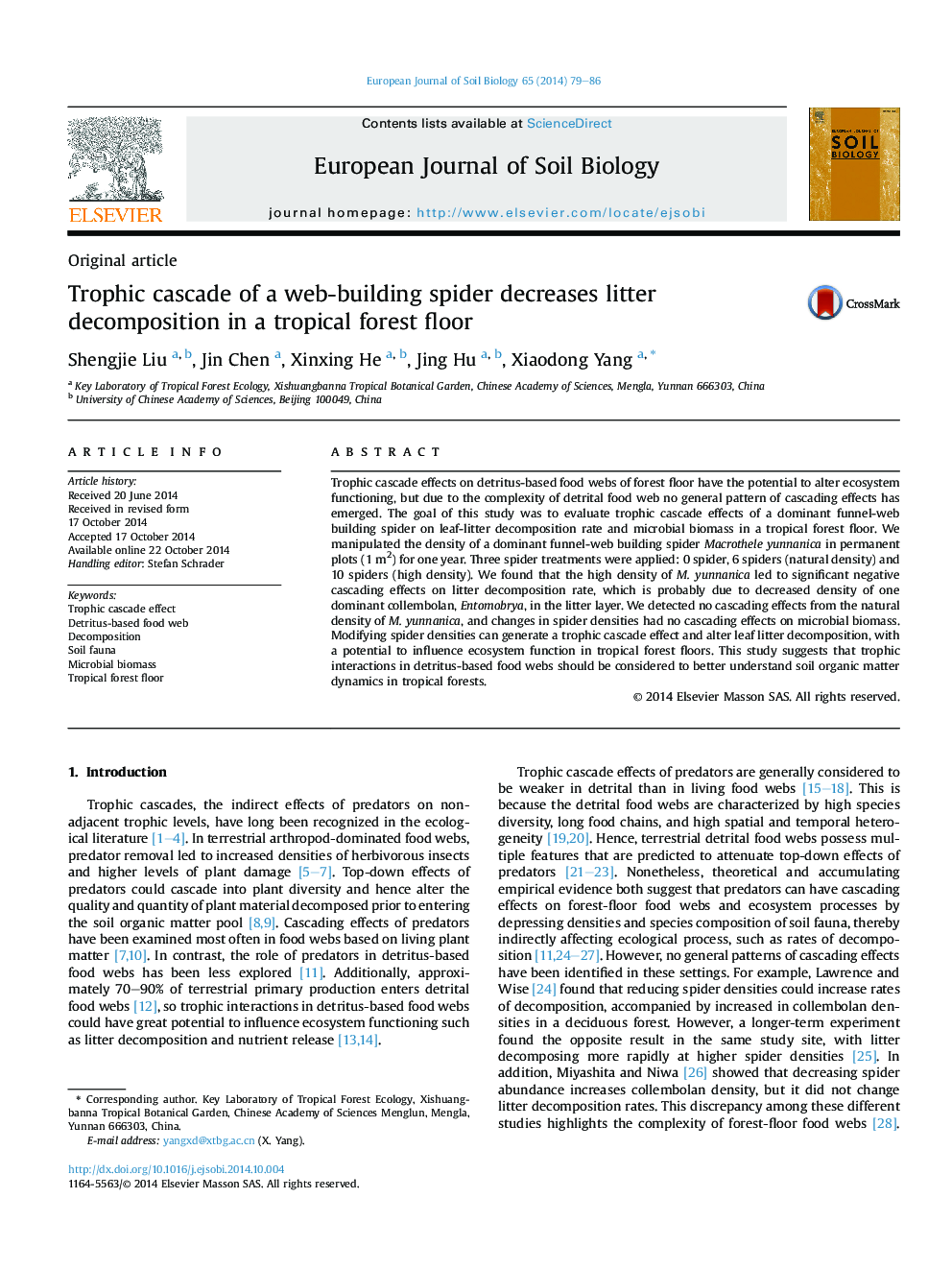| Article ID | Journal | Published Year | Pages | File Type |
|---|---|---|---|---|
| 4391866 | European Journal of Soil Biology | 2014 | 8 Pages |
Abstract
Trophic cascade effects on detritus-based food webs of forest floor have the potential to alter ecosystem functioning, but due to the complexity of detrital food web no general pattern of cascading effects has emerged. The goal of this study was to evaluate trophic cascade effects of a dominant funnel-web building spider on leaf-litter decomposition rate and microbial biomass in a tropical forest floor. We manipulated the density of a dominant funnel-web building spider Macrothele yunnanica in permanent plots (1 m2) for one year. Three spider treatments were applied: 0 spider, 6 spiders (natural density) and 10 spiders (high density). We found that the high density of M. yunnanica led to significant negative cascading effects on litter decomposition rate, which is probably due to decreased density of one dominant collembolan, Entomobrya, in the litter layer. We detected no cascading effects from the natural density of M. yunnanica, and changes in spider densities had no cascading effects on microbial biomass. Modifying spider densities can generate a trophic cascade effect and alter leaf litter decomposition, with a potential to influence ecosystem function in tropical forest floors. This study suggests that trophic interactions in detritus-based food webs should be considered to better understand soil organic matter dynamics in tropical forests.
Related Topics
Life Sciences
Agricultural and Biological Sciences
Soil Science
Authors
Shengjie Liu, Jin Chen, Xinxing He, Jing Hu, Xiaodong Yang,
